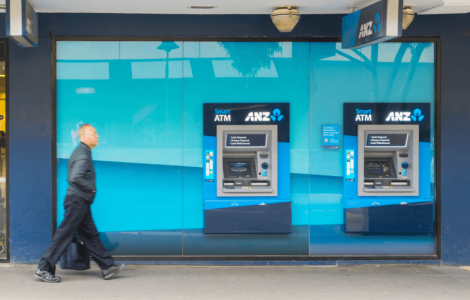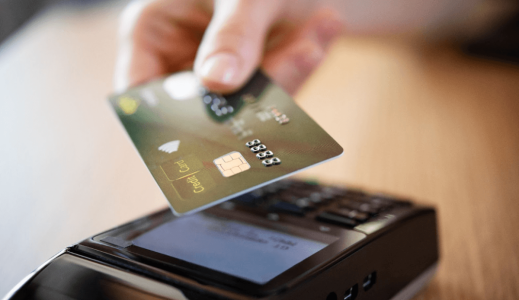Major banks under scrutiny after 61-year-old loses $10000 to overseas hackers
- Replies 11
It's never easy to experience loss, but it's all the more devastating when we are also taken advantage of in such difficult times.
Unfortunately, that happened to 61-year-old Richard (full name withheld for privacy reasons) from Canberra when he was dealing with his late wife's estate.
As if the day as a whole wasn't already trying enough, it got worse when two text messages arrived to alert Richard that both his bank accounts had been compromised and fraudulent activity had been detected.
He logged in to his ANZ and Great Southern Bank accounts to find that a heart-stopping $5,000 had been taken from each account in separate transactions.
'That created a fair bit of angst for me,' he told a media source. 'I was going through a fair bit of stress anyway with my wife passing away, I was at my lowest.'

Unfortunately, unlike Great Southern Bank, ANZ said they would not be able to do anything until the transactions had cleared since they were still pending.
'I just had to grin and bear it,' Richard said. 'They stayed pending for five days. All I could do was wait until the funds left my account. I went back and forth with ANZ for the whole five days.'
One ANZ staff member even said they couldn't block the transaction because they 'couldn't disadvantage the merchant'.
To add insult to injury, Richard could see the money being sent to someone in Kuwait.
'It was pretty much six weeks of hell,' he recalled. 'I kept logging into my bank. Eventually, it went from pending to out of my account altogether.'
To make a long story short, Richard eventually gained reimbursement for the money stolen from him by cybercriminals after six weeks, but the whole experience of not understanding how or why continues to hang over him to this day.
'The bank couldn’t tell me how it happened. It has impacted the way I behave during the day,' he said.
'I check my bank accounts every couple of hours. Every phone call I get is suspicious. Last night, I got one from an energy company. Everything is suspicious.'

Unfortunately, Richard's situation is not unique, as there have been similar cases of fraud reported in the past.
Recently, there was an Australian couple, Peter and Kay Shaw, whose dream trip to Europe turned into a nightmare when they discovered fraudulent activity on their credit card. They had travelled to Europe in May and encountered trouble when their flight out of Lisbon, Portugal, was cancelled.
'We had to make some alternative accommodation arrangements which we did through Booking.com,' Mr Shaw told a news source.
'Within a very short period of time, I got a message saying there were suspicious charges on my account.'

Worried about this, he checked his bank account and found three transactions totalling nearly $5000 on his credit card balance. These unauthorised charges were made on Booking.com in Amsterdam, which was about 2200 kilometres away from where the couple was at that time.
Mr Shaw faced significant difficulties while attempting to get his fraudulent expenses refunded from Booking.com.
'People need to be very wary. If they are owed money, they will have an absolute nightmare getting it back from Booking.com,' he said.
Initially, Mr Shaw struggled to find a reliable point of contact, and even when he managed to get in touch through an Australian phone number, it didn't lead to any resolution.
To address the issue, he turned to Booking.com's online chat services. Unfortunately, this only led to a frustrating cycle where he had to repeat his situation to different staff members every time he reached out to inquire about the progress.
They requested that he provide his credit card statement multiple times, which he dutifully did, but the situation remained unresolved.
In his interview with news.com.au, Mr Shaw shared that his credit statement still showed a negative balance. However, since then, there has been a positive update, as Booking.com eventually reimbursed him for the stolen funds.
Members, these stories are a stark reminder to be alert and vigilant when it comes to our personal finances. Cyber fraud is becoming more and more complicated, sophisticated, and hard to detect, so it's paramount that we stay up to date on newer security technologies and tools whenever possible.
We must do our best to protect ourselves and remain aware of the danger of cyber fraud that lurks out there. Not only should you take extra precautions when it comes to banking, but also keep the basics such as having strong passwords, updating your antivirus software regularly, or double-checking charges and purchases frequently in mind.
Remember, if you ever suspect fraudulent activity in your accounts, inform your bank immediately and ensure that you do what you can to get an appropriate resolution. And, most importantly, never give any personal information or money to anyone without double-checking!
What are your thoughts on these stories? Have you ever experienced something similar? If so, how did you handle the situation? Feel free to share your experiences with us by leaving a comment below!
Unfortunately, that happened to 61-year-old Richard (full name withheld for privacy reasons) from Canberra when he was dealing with his late wife's estate.
As if the day as a whole wasn't already trying enough, it got worse when two text messages arrived to alert Richard that both his bank accounts had been compromised and fraudulent activity had been detected.
He logged in to his ANZ and Great Southern Bank accounts to find that a heart-stopping $5,000 had been taken from each account in separate transactions.
'That created a fair bit of angst for me,' he told a media source. 'I was going through a fair bit of stress anyway with my wife passing away, I was at my lowest.'

Canberra resident loses $5,000 to overseas hackers, warns others to stay vigilant. Credit: Shutterstock.
Unfortunately, unlike Great Southern Bank, ANZ said they would not be able to do anything until the transactions had cleared since they were still pending.
'I just had to grin and bear it,' Richard said. 'They stayed pending for five days. All I could do was wait until the funds left my account. I went back and forth with ANZ for the whole five days.'
One ANZ staff member even said they couldn't block the transaction because they 'couldn't disadvantage the merchant'.
To add insult to injury, Richard could see the money being sent to someone in Kuwait.
'It was pretty much six weeks of hell,' he recalled. 'I kept logging into my bank. Eventually, it went from pending to out of my account altogether.'
To make a long story short, Richard eventually gained reimbursement for the money stolen from him by cybercriminals after six weeks, but the whole experience of not understanding how or why continues to hang over him to this day.
'The bank couldn’t tell me how it happened. It has impacted the way I behave during the day,' he said.
'I check my bank accounts every couple of hours. Every phone call I get is suspicious. Last night, I got one from an energy company. Everything is suspicious.'
Key Takeaways
- A 61-year-old Canberra man lost over $10,000 in fraudulent transactions from his accounts at Great Southern Bank and ANZ.
- While Great Southern Bank stopped the transactions immediately, ANZ could only recover his money once the transaction cleared and stayed pending for five days.
- He was eventually fully reimbursed, but the distressing experience has led him to check his bank accounts every couple of hours and be wary of the phone calls he receives.
Unfortunately, Richard's situation is not unique, as there have been similar cases of fraud reported in the past.
Recently, there was an Australian couple, Peter and Kay Shaw, whose dream trip to Europe turned into a nightmare when they discovered fraudulent activity on their credit card. They had travelled to Europe in May and encountered trouble when their flight out of Lisbon, Portugal, was cancelled.
'We had to make some alternative accommodation arrangements which we did through Booking.com,' Mr Shaw told a news source.
'Within a very short period of time, I got a message saying there were suspicious charges on my account.'

An Australian couple's dream trip to Europe turned into a 'nightmare' as a fraudster racked up $5000 in unauthorised credit card transactions. Credit: Shutterstock.
Worried about this, he checked his bank account and found three transactions totalling nearly $5000 on his credit card balance. These unauthorised charges were made on Booking.com in Amsterdam, which was about 2200 kilometres away from where the couple was at that time.
Mr Shaw faced significant difficulties while attempting to get his fraudulent expenses refunded from Booking.com.
'People need to be very wary. If they are owed money, they will have an absolute nightmare getting it back from Booking.com,' he said.
Initially, Mr Shaw struggled to find a reliable point of contact, and even when he managed to get in touch through an Australian phone number, it didn't lead to any resolution.
To address the issue, he turned to Booking.com's online chat services. Unfortunately, this only led to a frustrating cycle where he had to repeat his situation to different staff members every time he reached out to inquire about the progress.
They requested that he provide his credit card statement multiple times, which he dutifully did, but the situation remained unresolved.
In his interview with news.com.au, Mr Shaw shared that his credit statement still showed a negative balance. However, since then, there has been a positive update, as Booking.com eventually reimbursed him for the stolen funds.
Members, these stories are a stark reminder to be alert and vigilant when it comes to our personal finances. Cyber fraud is becoming more and more complicated, sophisticated, and hard to detect, so it's paramount that we stay up to date on newer security technologies and tools whenever possible.
We must do our best to protect ourselves and remain aware of the danger of cyber fraud that lurks out there. Not only should you take extra precautions when it comes to banking, but also keep the basics such as having strong passwords, updating your antivirus software regularly, or double-checking charges and purchases frequently in mind.
Remember, if you ever suspect fraudulent activity in your accounts, inform your bank immediately and ensure that you do what you can to get an appropriate resolution. And, most importantly, never give any personal information or money to anyone without double-checking!
What are your thoughts on these stories? Have you ever experienced something similar? If so, how did you handle the situation? Feel free to share your experiences with us by leaving a comment below!







